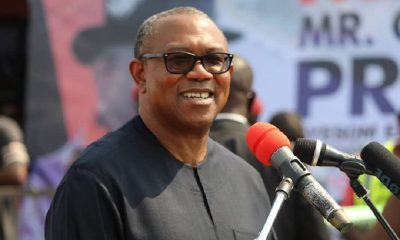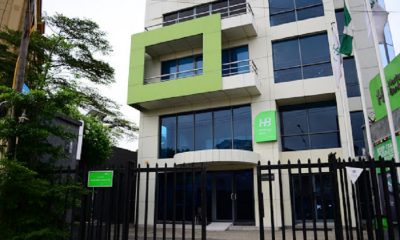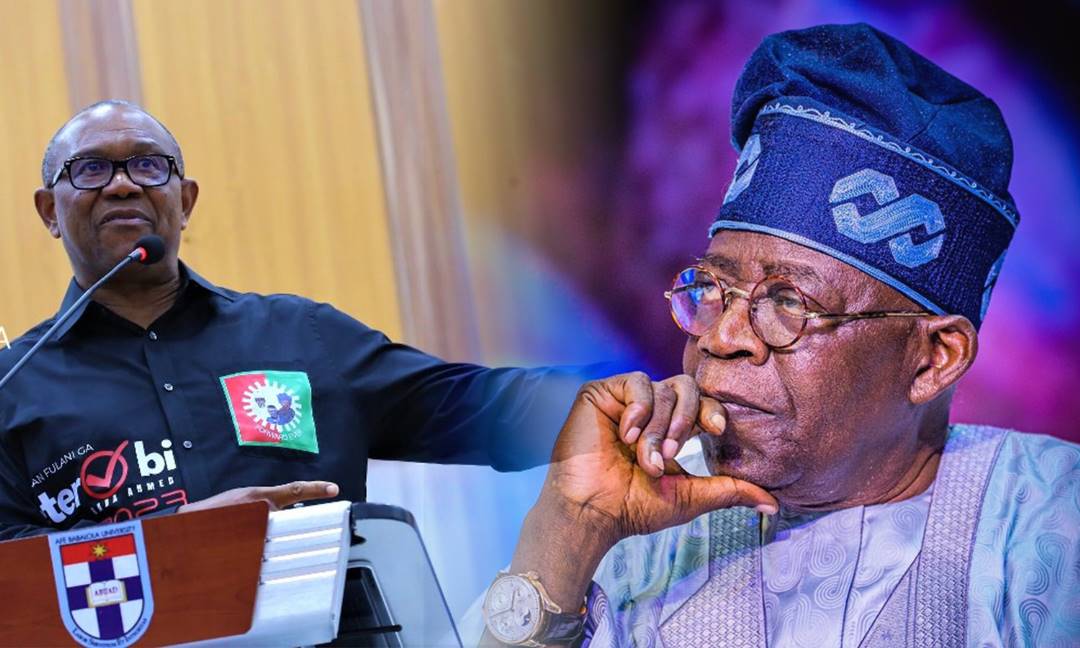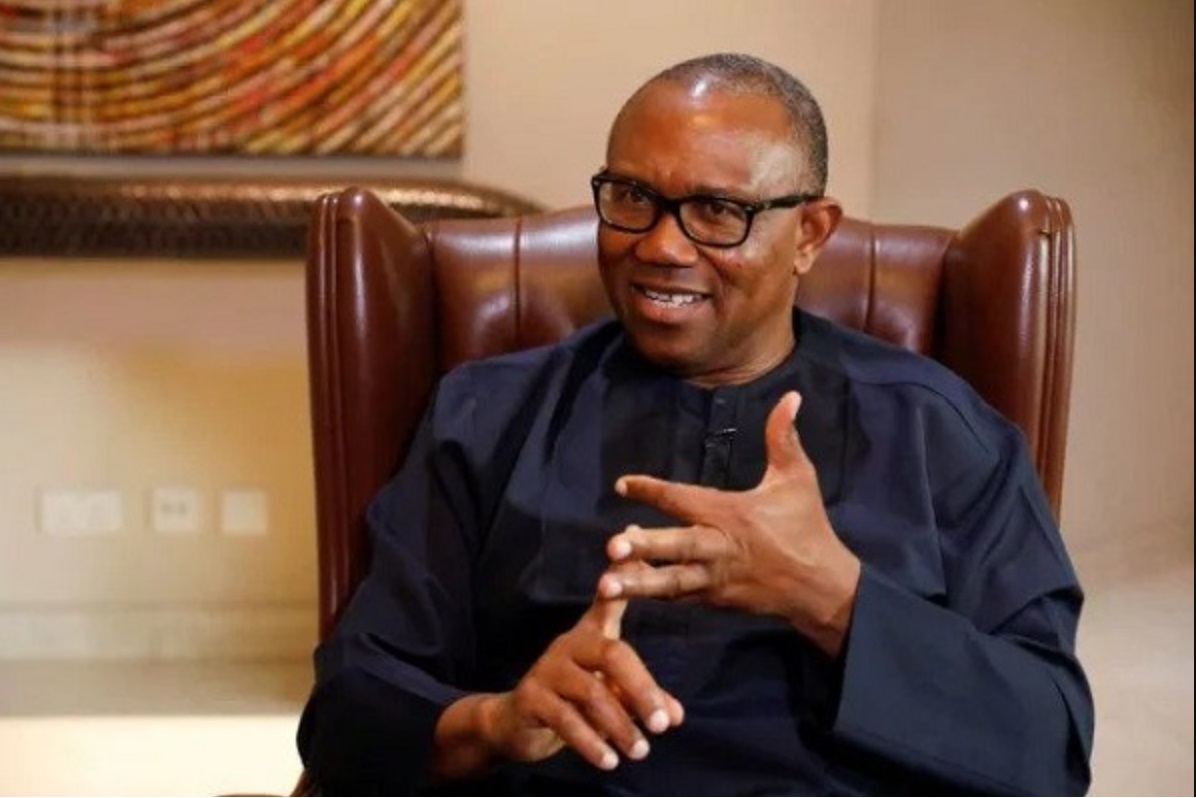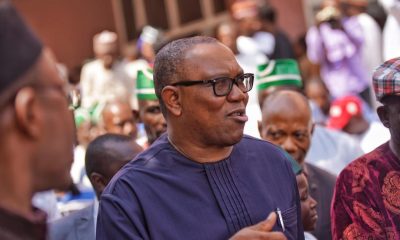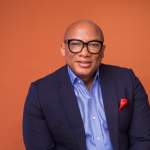Economy
Nigeria Must Adopt Dual Circulation Economy to Prosper—Sekibo
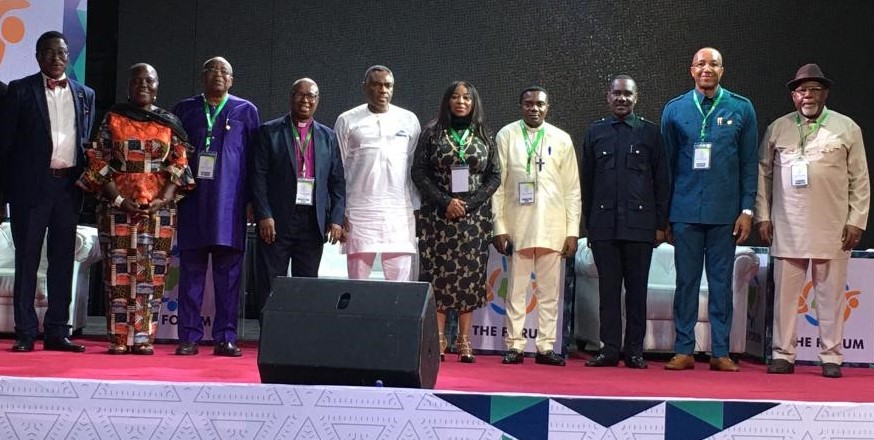
By Aduragbemi Omiyale
The Managing Director of Heritage Bank Plc, Mr Ifie Sekibo, has advised the federal government to adopt a dual circulation economic strategy like China to attain prosperity.
A dual circulation economy involves growing exports and expanding domestic demands from locally produced items by building higher consumption almost at the same time.
For Mr Sekibo, this strategy will work well in Nigeria because the country has the population to soak the pressure.
Speaking at an event organised by The Men’s League of Christ Church Port Harcourt, Rivers State, he also stressed that the government must address security challenges and leadership issues as they remain very critical for the success of the economic model.
At the programme themed What do Nigerians Want,? Mr Sekibo said, “On a higher note, I think one of the things that we need to achieve as a country is the issue of functional and value-adding identity management, which is still far away from us, although, some people know that we have BVN, NIMC and a few other identity capture systems they have not been as functional and value-adding, like the social security number that most people in advanced economies carry.”
The Heritage Bank chief, who was represented by the Divisional Head of Strategy and Business Solutions of the bank, Mr Segun Akanji, further explained that to achieve a prosperous economy, Nigeria needs to find ways and means by policies to build a dual circulation economy which thrives on three pillars.
According to him, the country needs to focus on building a dual circulation economy where it can expand domestic production and demand by making sure that the masses are employed.
“We need to make our people productive and stop putting subsidies in unproductive zones. When you give subsidies to people with inadequate or no income, they really cannot add value to the economy, and money has a way of flowing away due to the import of consumables from other countries and because of this, a larger portion of every consumption or cash given as subsidy gets out of the country,” Mr Sekibo stated while delivering a paper titled The Economy Nigeria Needs to Break Forth.
The bank’s helmsman further explained that to expand the domestic production, the government must give the private sector support to drive employment creation, technology, which is riding on innovation and manufacturing must be in place and, the population which is an added advantage must be well educated.
He highlighted the need to examine how the country could add value to primary production for global export, emphasizing on reduction of over-dependence on foreign markets but rather increasing local production for export, whilst also increasing demand for local products.
Mr Sekibo further affirmed that if states could function as proper federating units and take the lead of the competitive comparative advantages therein, wealth creation would be achieved that would bring about the desired changes.
Also speaking at the event, the former Governor of Anambra State and presidential candidate of the Labour Party (LP) in the 2023 general elections, Mr Peter Obi, agreed with Mr Sekibo that the country must address the issues of insecurity and leadership deficiency in order to prosper.
He lamented the huge indebtedness of the country, which he blamed on unproductivity due to the inimical situation of a high unemployment rate resulting in over 80 million Nigerians being jobless.
According to him, cumulative failure of the government over the years plunged Nigeria into insecurity, noting that other factors include the failure to migrate from sharing formula to production formula and lack of will to transform the power sector and the need to focus and support the micro, small and medium enterprises (MSMEs).
On his part, a clergyman, Pastor Ituah Ighodalo, harped on the need for leadership change, arguing that what the country needs now are leaders who have a vision and are ready to sacrifice for the common man, stating, “things must be done differently”.
Also speaking, Prof. Oyelowo Oyewo submitted that the police, power provision and railway must be decentralised as this will make states to be less dependence on the centre.
He maintained that regions are closer to the people and will boost security, the economy and the sense of belonging by the populace. He also identified data and planning as key factors in ensuring that programmes are tailored towards the people.
Economy
Naira Crashes to N1,378/$1 as FX Demand Outpaces Supply

By Adedapo Adesanya
The gradual fall of the Naira against the United States Dollar continued on Monday after it further lost N14.63 or 1.07 per cent to close at N1,378.02/$1 compared with the N1,363.39/$1 it was traded at last Friday at the Nigerian Autonomous Foreign Exchange Market (NAFEX). This was due to an insufficient supply of FX to meet the demand of customers at the currency market.
The Nigerian currency also depreciated against the Pound Sterling in the same market segment during the session by N9.65 to trade at N1,846.14/£1 compared with the previous trading day’s rate of N1,836.49/£1, and declined against the Euro by N3.76 to settle at N1,612.98/€1 versus the preceding session’s N1,609.22/€1.
In the same vein, the Nigerian Naira tumbled against the greenback in the black market yesterday by N5 to quote at N1,375/$1, in contrast to the previous value of N1,370/$1, as forex demand pressure gradually mounts.
The Central Bank of Nigeria (CBN) sold $200 million to boost the supply side and moderate demand pressures. For February, the CBN operated on both sides of the market, selling $225 million and purchasing $261.80 million. However, as FX demand continued to outpace available supply, pressure mounted further in the market.
Meanwhile, the research subsidiary of Coronation Merchant Bank said FX liquidity improved significantly last week. Total FX inflows into the official window rose to $1.07 billion from $648.20 million in the prior week.
Analysts maintain that the exchange rate is still trading within its projected N1,350 to N1,450 per Dollar band, dismissing panic concerns.
Meanwhile, the cryptocurrency market was bullish on Monday after macro shocks triggered repositioning across markets, and digital currencies benefited as some investors rotated back into risk.
After weeks of US military buildup and deadlocked nuclear diplomacy, the war with Iran increases the danger of a wider regional confrontation in a strategically vital economic corridor, adding to the risk gains for the market.
Ethereum (ETH) gained 5.5 per cent to trade at $2,050.07, Solana (SOL) appreciated by 5.2 per cent to $87.76, Bitcoin (BTC) added 4.9 per cent to sell for $69,322.35, Binance Coin (BNB) rose 3.2 per cent to $637.94, and Litecoin (LTC) expanded by 3.0 per cent to $52.39.
Further, Ripple (XRP) jumped 2.9 per cent to $1.40, Cardano (ADA) improved by 2.1 per cent to $0.2801, and Dogecoin (DOGE) increased by 1.9 per cent to $0.0946, while the US Dollar Tether (USDT) and the US Dollar Coin (USDC) remained unchanged at $1.00 apiece.
Economy
Oil Prices Surge as Strait of Hormuz Traffic Freezes Amid Iran-Israel Row

By Adedapo Adesanya
Oil prices surged 8 per cent on Monday as Israel and US strikes on Iran and retaliation by the Islamic Republic forced shutdowns of oil and gas facilities across the Middle East and disrupted shipping in the crucial Strait of Hormuz.
Brent crude rose 8.7 per cent or $6.36 to trade at $79.23 per barrel, while the US West Texas Intermediate (WTI) crude expanded by $7.8 per cent or 5.27 per cent to $72.29 per barrel.
Oil’s surge on the restart of trading after the weekend, however, was smaller than expected. On Sunday, some analysts had predicted oil would open above $90 a barrel and closer to $100.
The widening Iranian conflict is disrupting oil flows to several Asian countries as vessels are bottled up within the Middle East Gulf, and crude and transport costs are rising.
US President Donald Trump signalled the US-Israel military assault could continue for weeks, which could mean a prolonged disruption of traffic through the Strait of Hormuz, through which around 20 per cent of global oil output and a similar share of liquefied natural gas transits via ships from Middle East producers.
On Monday, Saudi Arabia shut its biggest domestic oil refinery after a drone strike. Qatar halted production of liquefied natural gas, and state-owned QatarEnergy was set to declare force majeure on LNG shipments.
The widening Iran conflict also left 150 ships stranded at anchor around the Strait of Hormuz after a seafarer was killed and at least three tankers were damaged.
The disruptions highlight the risks to Asia, the world’s biggest oil-consuming region, which sources 60 per cent of its oil from Middle Eastern producers. For instance, an extended disruption of the Strait would push oil prices higher and could cause supply shortages to China and India, the world’s biggest and third-biggest oil importers, forcing countries to tap stockpiles and reducing refinery operations.
In the view of the International Energy Agency (IEA) and other analysts, the oil market is well supplied with additions to supply from producers such as the United States, Guyana and the Organisation of the Petroleum Exporting Countries and its allies (OPEC+) expected to outpace global demand this year.
Eight members of OPEC+ agreed on Sunday to raise oil output by 206,000 barrels per day in April.
Economy
Dangote Taps Vetiva, Others for $20bn Refinery NGX Listing

By Adedapo Adesanya
The Dangote Group has appointed Stanbic IBTC Capital, Vetiva Capital Management, and First Capital as lead issuing houses and financial advisers for its planned listing of its $20 billion Dangote Petroleum Refinery and Petrochemicals on the Nigerian Exchange (NGX) Limited in the coming months.
According to reports, which cited sources familiar with the matter, the listing could mark Africa’s largest equity offering, with plans to float 5-10 per cent of the refinery at a debut valuation of $40-50 billion. This could potentially boost the Nigerian main bourse’s market cap past N200 trillion from the current almost N125 trillion.
Stanbic IBTC, part of Standard Bank, will handle international book-building and foreign investor outreach, while Vetiva, with prior Dangote listing experience, focuses on local retail and regulations.
Late last month, the chairman of Dangote Group, Mr Aliko Dangote, said that within the next five months, Nigerians should be able to purchase shares of the refining subsidiary of his conglomerate.
The Lagos-based refinery is the largest single-train refinery in the world with 650,000 barrels per day refining capacity. There are efforts to boost the capacity to 1.4 million barrels per day soon.
“Nigerians too will have an opportunity in the next, maybe a maximum of four to five months. There will actually be an opportunity to buy the shares,” he said during a tour of the facility by the chief executive of the Nigerian National Petroleum Company (NNPC) Limited, Mr Bayo Ojulari, alongside members of the company’s executive management.
The facility, which is now operating at full capacity, a world-record milestone for a single-train refinery, comes after the completion of an intensive performance testing on the refinery’s Crude Distillation Unit and Motor Spirit production block.
The refinery is now positioned to supply up to 75 million litres of petrol daily to the domestic market, an increase from the 45 million – 50 million litres delivered during the recent festive period.
The development can reshape Nigeria’s energy landscape and reduce the country’s longstanding dependence on imported refined products while positioning the country as a net exporter to West African markets.
Yet, the refinery faces difficulty securing adequate crude oil supplies from Nigerian producers, forcing it to import feedstock from the US, Brazil, Angola, and other countries.
-

 Feature/OPED6 years ago
Feature/OPED6 years agoDavos was Different this year
-
Travel/Tourism10 years ago
Lagos Seals Western Lodge Hotel In Ikorodu
-

 Showbiz3 years ago
Showbiz3 years agoEstranged Lover Releases Videos of Empress Njamah Bathing
-

 Banking8 years ago
Banking8 years agoSort Codes of GTBank Branches in Nigeria
-

 Economy3 years ago
Economy3 years agoSubsidy Removal: CNG at N130 Per Litre Cheaper Than Petrol—IPMAN
-

 Banking3 years ago
Banking3 years agoSort Codes of UBA Branches in Nigeria
-

 Banking3 years ago
Banking3 years agoFirst Bank Announces Planned Downtime
-

 Sports3 years ago
Sports3 years agoHighest Paid Nigerian Footballer – How Much Do Nigerian Footballers Earn


